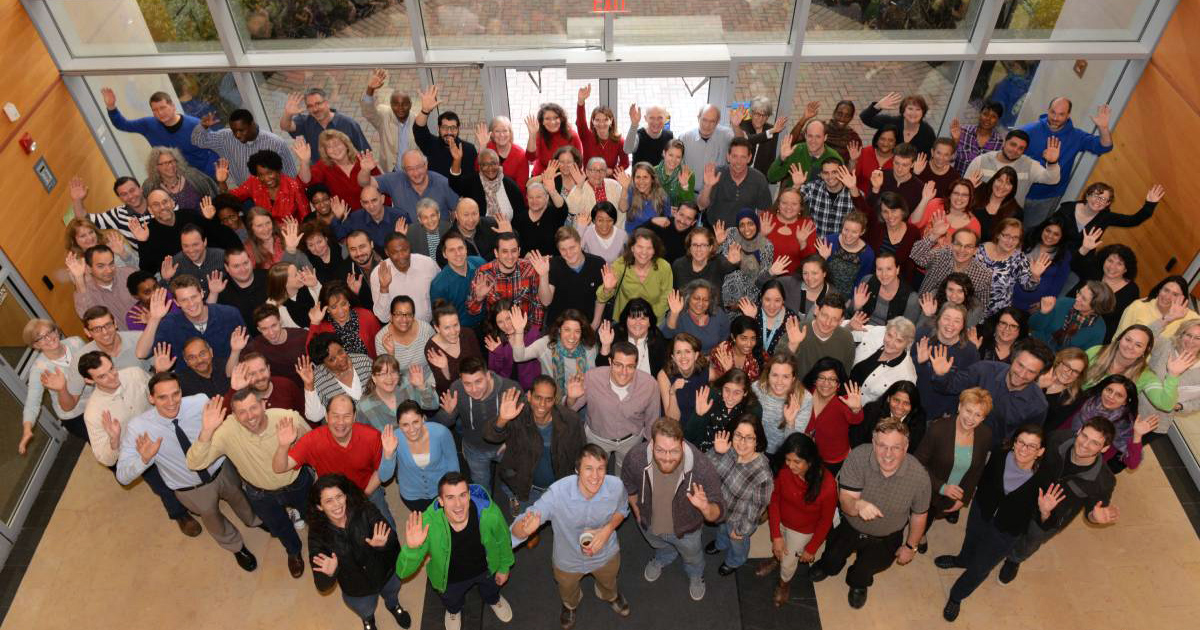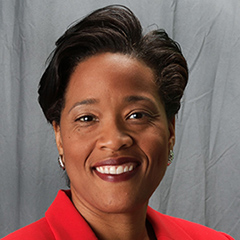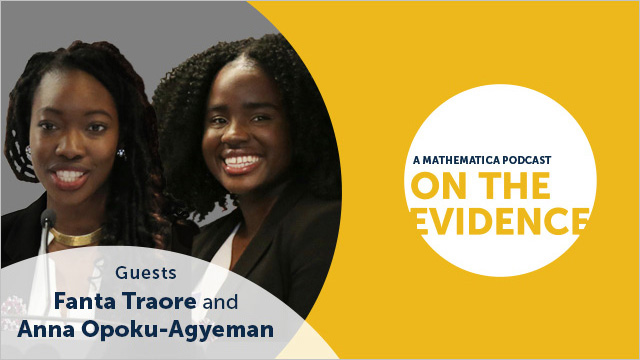We organized our Diversity, Equity, and Inclusion (DEI) Strategic Plan around four interrelated strategic pillars—workforce, workplace, our work, and marketplace—that set a clear direction for our DEI goals, actions, and expected outcomes. This post is the first in a series on how we are using the pillars to put the plan into action.
Intentionally embracing DEI principles requires a purposeful examination of how evident they are within one’s organization. Our examination of how those principles are applied in relation to Mathematica’s workforce emphasized an important idea:
Although our workforce is becoming more ethnically and racially diverse, there is still work to do to increase diversity among other demographic and social identity groups.
To address this issue, we increased our emphasis on attracting and retaining diverse, talented employees, and offering opportunities for professional growth and career development. This enables Mathematica to use the advancement of our DEI goals to deliver on our 2035 vision and to be a more intentional and culturally responsive partner for the communities we serve.
To attract people with backgrounds and viewpoints that reflect the diverse communities Mathematica serves, we are developing an advanced talent acquisition pipeline that expands and diversifies our strategic talent sourcing partnerships. Existing partnerships include those we have with The Sadie Collective and Health Career Connection. Our work with these partners, whether participating in their career fairs or hiring interns through their programs, creates pathways for long-term connection and interest in Mathematica for members of underrepresented groups.
We also seek to build new relationships with academic institutions, bridge programs, and public programs, as well as professional organizations, and through attending conferences. The Talent Acquisition professionals in our Human Resources department intentionally seek out talent from Hispanic-serving institutions, historically Black colleges and universities, Asian American and Native American Pacific Islander-serving institutions, and minority-serving institutions.
Our commitment to diversifying our talent also involves enhanced outreach and partnerships with groups and organizations focused on individuals living with disabilities, veterans, and those in the LGBTQIA/+ community. Recent outreach at the ABILITY Job Fair, Careers and the disABLED, Bender career fairs, and leading a career café with the NJ Commission for the Blind connected us directly to people with disabilities. We also worked with disability services offices at universities, attended state Department of Labor events to connect with veterans, and in networks/events focused on LGBTQ/+ individuals to deep our connections with these communities. Successfully sustaining and building trust with these partners means being purposeful with our actions to demonstrate that our expressed interest is genuine and that we are committed to increasing access to opportunities for the groups they serve.
Our talent acquisition strategy focuses on specific areas in which we need to increase diversity, such as the leadership level throughout Mathematica. That focus extends to addressing our upcoming business and subject matter needs. For example, Mathematica is searching for people to fill roles at the director level in our Health and International Units, as well as opportunities in our Finance and Business Operations departments. At the same time, we realize that retaining the more diverse workforce we have built enables us to reflect and be more aligned with the communities we serve. To that end, we have embraced increased transparency around representation and information sharing about our progress.
In 2021, we began sharing workforce data internally via an interactive dashboard. We carefully measure our progress in building and retaining a more diverse workforce by looking at hiring rates, turnover rates, and head count data for each of our business units, as well as for the entire company. Over time, we’ve been able to add information about disability and veteran hiring to the dashboard. Staff have commended the transparency and clarity of the dashboard and the insights it offers.
Open conversations, along with information sharing, have enabled us to improve accountability with employees on our progress. The DEI team hosts quarterly sessions in which we highlight the advances we’re making to integrate DEI across organizational systems, processes, and practices. Recently, conversations have centered on specific aspects of the larger DEI strategic plan. We also have started to share how teams across Mathematica actively integrate DEI principles and techniques into their work. Questions and insights from these sessions are considered during ongoing program or process planning. We also make note of ideas we cannot immediately act on, in case we are able to work toward them in the future.
To retain our diverse talent, Mathematica is also building staff capability through professional development opportunities. Our new DEI learning strategy helps advance employees’ understanding of DEI through learning opportunities on equitable and inclusive practices. Staff become familiar with four key DEI competencies: cultural awareness, emotional intelligence, inclusive practices, and adaptability. These competencies create a common foundation for future learning and are essential to equitable and inclusive work. By focusing on building employee self-awareness of how they can implement DEI principles in their work and interactions with others, they can contribute to process and system changes at an organizational and project level.
Our resolve to retain our diverse workforce also extends to being more intentional about who Mathematica recognizes and rewards and why. In 2022, we invited staff to share their contributions to advancing DEI as a component of their performance appraisals. In 2023, we have taken DEI in performance a step further. Our executives, as well as members of our DEI groups and DEI plan implementation teams, are accountable for specific DEI metrics as part of their annual performance goals. We also encourage staff advancing DEI efforts in various ways to reflect contributions to DEI in their performance self-appraisals.
Two annual awards—the Patricia A. King Excellence in DEI Award and Charles Metcalf Leadership Award—celebrate colleagues for their contributions to our goal of being a culturally responsive partner for the communities we serve. The Patricia A. King Excellence in DEI Award honors a former Mathematica board member who set the bar for how we approach inclusion and making sure that our work is impactful and inclusive. This award recognizes outstanding staff leadership and demonstrated commitment to advancing DEI and Mathematica’s values. The Charles Metcalf Leadership Award, named for our former chief executive officer, celebrates leadership that reflects the core values, cultural fundamentals, and mission-driven work of Mathematica. This award spotlights individuals who have inspired others to continuously learn, collaborate, reach higher, and make progress together in advancing our interests.
We also take the opportunity to highlight our staff through our ongoing series of interviews—Humans of Mathematica—which celebrates Mathematica’s diversity through pictures and stories. We built Humans of Mathematica on the idea that by sharing personal stories, we could enhance empathy among staff and build a stronger sense of community and connection across our organization.
Taken together, this approach to talent acquisition and retention, employee development, and recognition at multiple levels enables us to better reflect the makeup of the communities served by our work at all levels of our company. Mathematica’s diversity enhances our culture and the employee experience by contributing to a sense of belonging and connection among colleagues, while reflecting the rich diversity represented in the communities we partner with and serve through our work.
Special thanks to the Talent Acquisition and Learning and Performance teams for their contributions to this post.



